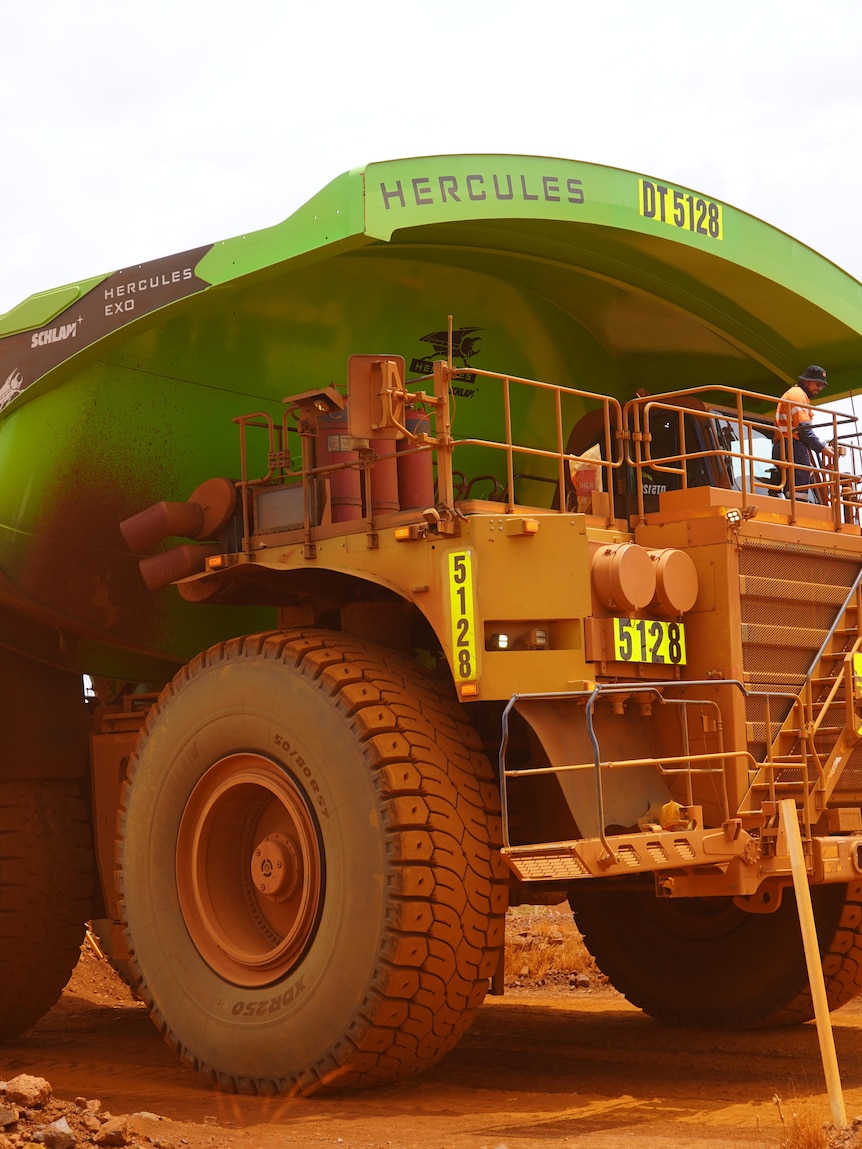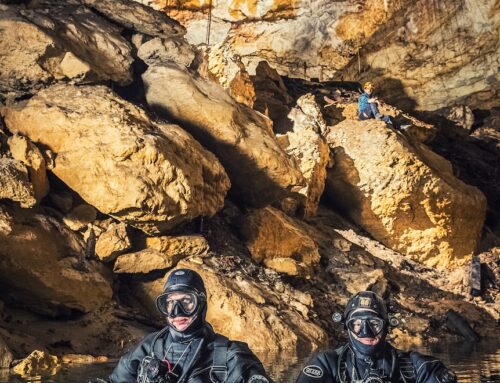Mining giant BHP has launched a “renewable diesel” trial to reduce carbon emissions at a Pilbara iron ore mine, but an environmental engineer says the company may be better off with the real thing.
Key points:
- BHP is trialling renewable diesel in machinery at its Yandi iron ore mine
- It’s part of the company’s interim measures to reduce diesel fuel carbon emissions
- An environmental engineer says renewable diesel has negative environmental impacts which cannot be ignored
Hydrotreated vegetable oil (HVO) blended with diesel will be supplied to the site by BP and used to power mining equipment including haul trucks, loaders, and bulldozers.
Yandi’s general manager of operations Yanni Kotsos said the three-month trial was part of BHP’s efforts to reduce diesel fuel carbon emissions while it waited for battery electric equipment to become available.
“In terms of the BHP group’s greenhouse emissions about 40 per cent comes from the use of diesel fuel, so naturally this is a core focus of our decarbonisation strategy,” Mr Kotsos said.
“Ultimately our goal is to reach electrification, but while that transition is happening this could be a promising alternative to reduce our emissions in the near term.”
‘Not necessarily’ the right step
University of South Australia associate professor James Hopeward commended the companies on the trial.
“At the local scale … this is really good that people are having a serious conversation about the energy transition, reducing carbon emissions, and transitioning to a zero-carbon future,” the environmental engineer said.
“I can certainly see why, when there is a tremendous amount of pressure to reduce greenhouse gas emissions as quickly as possible, there would be a tendency to say, ‘We need to green the fleet by greening the fuel while we wait for the technology to catch up in terms of the electrification’.
“I’m not sure if that’s necessarily the way that we should go.”
Mr Hopeward raised concerns about the environmental footprint associated with producing renewable diesel which he said was 10 times that of producing the same amount of energy via solar or wind farms.
He said the trial was “certainly not greenwashing” but suggested the overall environmental benefit would not be as large as some might expect.
“[Renewable fuel] is much more impactful to the environment in terms of a negative impact,” Mr Hopeward said.
“They take an enormous amount of land, they take nutrients, they take water, and they just have a large footprint.
“If we’re talking about a solar farm or a wind farm these things have an impact as well, but it’s a smaller impact in terms of space.”
Battery electric alternatives years away
Mining companies across the world are looking to battery electric alternatives to help reach their net zero targets, but haul trucks are still years away.
Mr Kotsos said BHP’s Western Australian iron ore business expected a “learner” battery electric haul truck to become available in 2024, but the vehicles would not be commercially available until “later in the decade”.
“[BHP will] gradually begin replacing our haul truck fleet and we expect all the replacements to be done by sometime in the mid-2030s,” Mr Kotsos said.
While the industry waits for battery electric technology, Mr Hopeward suggested mining companies could investigate ways to reduce diesel consumption by increasing efficiency, and offsetting emissions in the meantime.
“To offset that carbon through environmentally beneficial activities like large scale revegetation … should certainly be in the mix of how we make this transition,” he said.
“We genuinely then reduce net carbon emissions while also having a positive impact on biodiversity and then transitioning, when the technology allows it, to an electric future.”
Following BHP’s three month HVO trial, the company will decide whether to roll the renewable diesel out across its sites more broadly.





